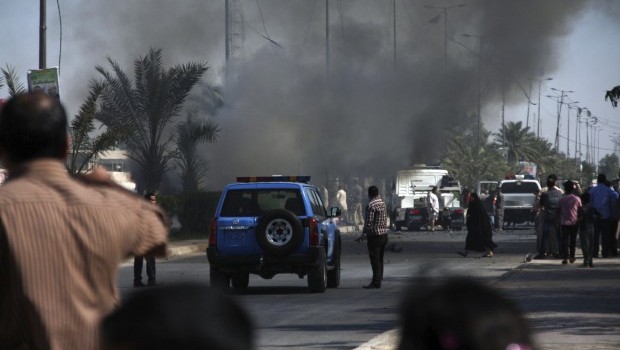
Smoke rises from the site of a bomb attack in Baghdad’s Sadr City March 19, 2013. Source: REUTERS/Wissm al-Okili
London, Asharq Al-Awsat—A mixture of car and suicide bombs killed over 50 Iraqis in Baghdad on Tuesday, according to the Iraqi security forces, with over 150 injured.
The attacks were directed at civilian targets during rush hour in predominantly Shi’ite districts across the city, including coffee shops, bus stations, and laborers queuing for work, and involved around 10 separate bombs. According to reports, at least six of the attacks took place within an hour of each other.
The first bomb exploded in Baghdad’s Mashtal district, followed in swift succession by blasts in Sadr City, Hussainiyah, Zafarniyah and other districts and suburbs across the capital.
The attack follows a similar wave of bombings in the southern Iraqi city of Basra yesterday, which left 10 people dead and injured almost 20 more.
The bombings also coincide with the anniversary of the original invasion of Iraq by the US and its allies in mid–March 2003.
Although there have been no claims of responsibility, Sunni militants linked to Al-Qaeda are widely-held to be responsible for the attacks, in an attempt to destabilize the existing Shi’ite-dominated political system and worsen the sectarian violence in the country.
Currently, political violence in Iraq is estimated to claim an average of 300 lives each month.
The recent attacks follow a growing series of protests among Iraq’s Sunnis against what they perceive as the the sectarian bias shown by the security forces and the neglect by the central government, led by the Shi’ite prime minister Nuri Al-Maliki.
